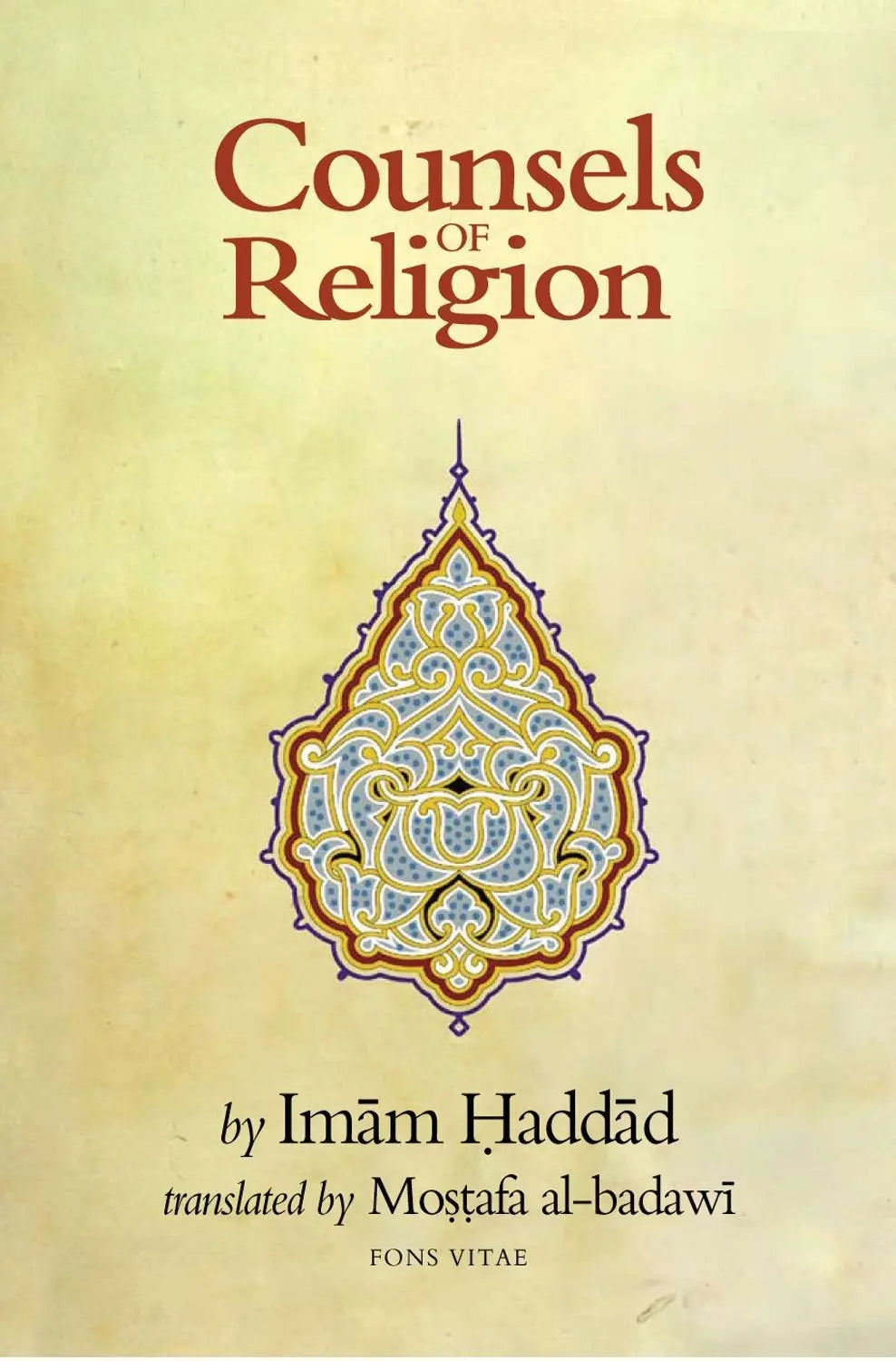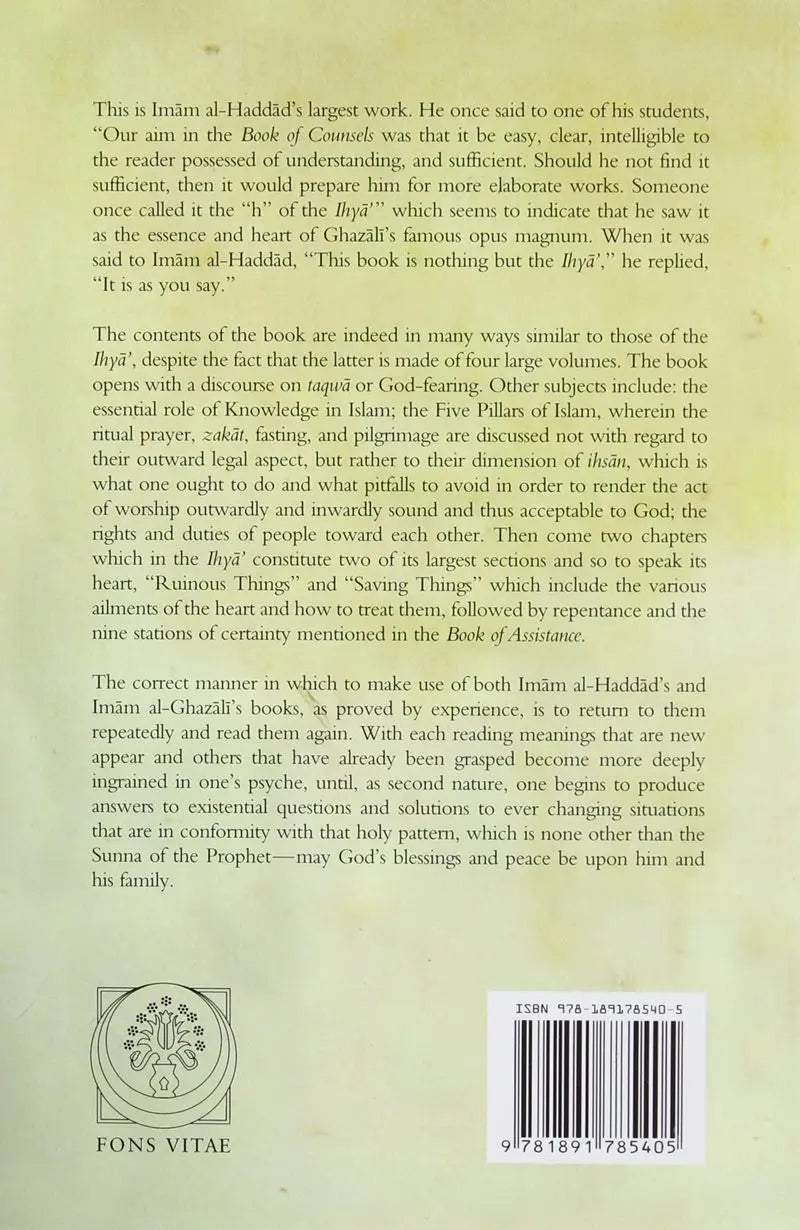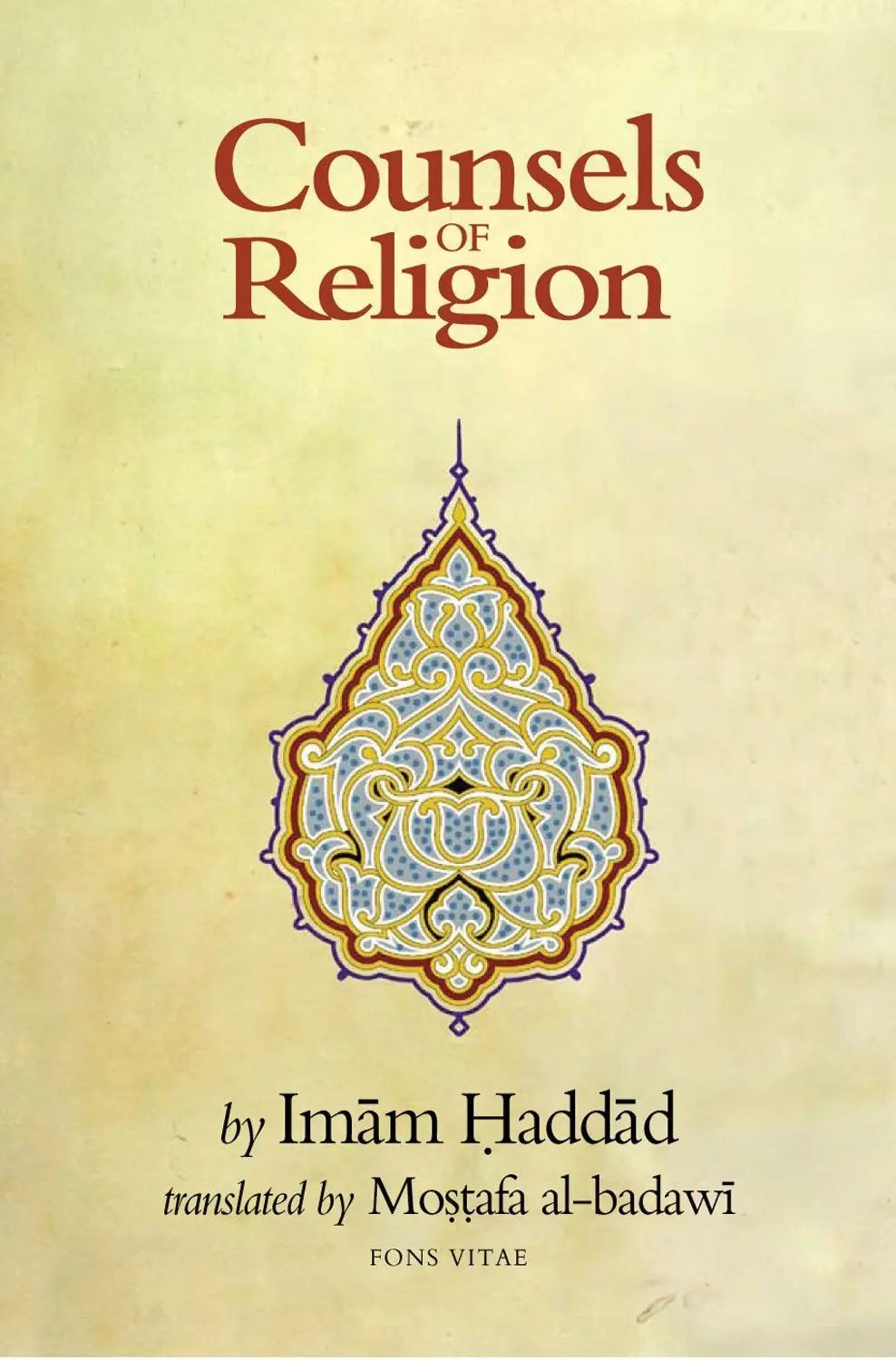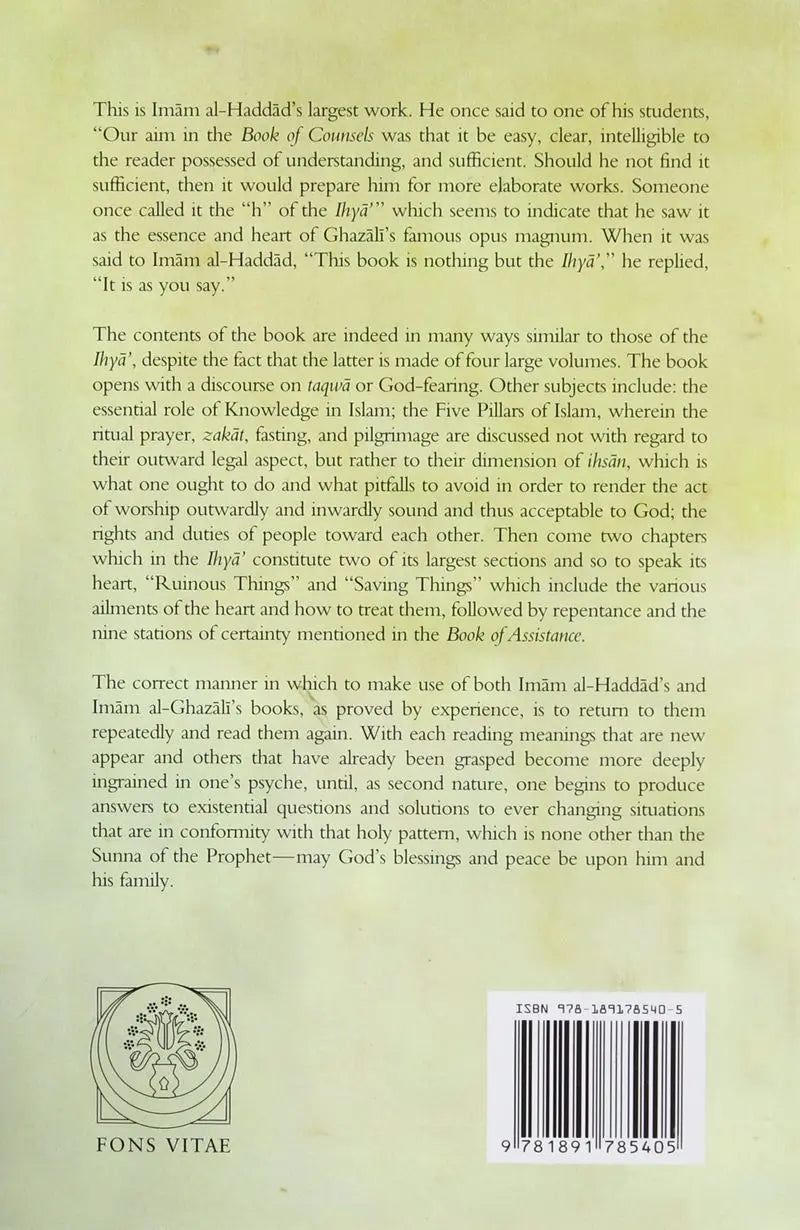About The Book
The contents of the book are in many ways similar to those of the Ihya’, despite the fact that the latter is made of four large volumes. The book opens with a discourse on taqwa or God-fearing, leading up to the role of taqwa in attaining to a good ending to life, which means passing into the next life as a Muslim, thereby making certain of reaching paradise.
As parts of taqwa are discussed such outward endeavors as unity among Muslims, the avoidance of division and discord, and the duty to enjoin good and forbid evil. Taqwa also comprises inward things such as contentment with God and His decrees, avoiding distraction and illusory hopes, fear of God, the remembrance of death, avoiding hoping for forgiveness without working for it, while using predestination as a justification.
The essential role of knowledge in Islam is discussed next, followed by four of the five pillars of Islam. The fifth, which in the usual order comes first, the testimony of La ilaha illa’llah, Muhammadun Rasulu’llah is left till the end, where it is explained as the Creed of Ahl al-Sunna wa’l-Jama‘a.
The four other pillars, the ritual prayer, zakat, fasting, and pilgrimage, are discussed not in regard with their outward legal aspect, but rather their dimension of ihsan, which is what one ought to do and what pitfalls to avoid in order to render the act of worship outwardly and inwardly sound and thus acceptable to God.
Among the most important things which make an act of worship acceptable is the degree to which one’s heart is present with God, and to this and to reciting the Qur’an a chapter is devoted. The eighth and ninth chapters are related, since enjoining good and forbidding evil constitute a major part of Jihad. The tenth relates to the rights and duties of people toward each other, such as the duties of political leaders towards their communities, those of judges, those of children toward their parents, parents toward their children, spouses toward each other, relatives, and other such matters with which those who enjoin good and forbid evil should be well acquainted.
Then come two chapters which in the Ihya’ constitute two of its largest sections and so to speak its heart, “Ruinous Things” which are those deeds, emotions, and characters which ruin one’s heart by darkening it, and “Saving Things” which, being their opposites, lead to the heart’s purification and enlightenment.
Ruinous things include everything that is legally forbidden, as well as the crimes of the tongue and ailments of the heart such as arrogance, resentful envy, avarice, and so on.
Saving things include repentance, the nine stations of certainty mentioned in the Book of Assistance, in addition to sincerity, reflection, and short hopes.
About The Author
Imam Abd Allah ibn Alawi al-Haddad was born in 1634 CE (1044 Hijri). He lived his entire life in the town of Tarim in Yemen’s Valley of Hadramawt and died there in 1720 CE (1132 Hijri). In Islamic history, he was considered one of the great Sufi sages. He was an adherent to the Ashari Sunni Creed of Faith (Aqeedah), while in Islamic jurisprudence (Fiqh), he was a Shafi'i.
In spite of being a major source of reference among the Sunni Muslims (especially among Sufis), only recently have his books began to receive attention and publication in the English-speaking world. Their appeal lies in the concise way in which the essential pillars of Islamic belief, practice, and spirituality have been streamlined and explained efficiently enough for the modern reader. Examples of such works are The Book of Assistance, The Lives of Man, and Knowledge and Wisdom.
About The Translator
Mohammad Mustafa Badawi was born in Alexandria (Egypt) in 1925 and obtained BA from Alexandria University and Ph.D. from London University.
He is a Fellow of St. Anthony’s College, Oxford, and former Professor of Modern Arabic Literature and Director of Middle Eastern Studies Center at Oxford. He served for many years as editor-in-chief or member of editorial boards of international journals of Middle Eastern studies. He was also a member of the editorial board of the Cambridge History of Arabic Literature (which got translated to Arabic in 2002).
Professor Badawi published some 30 books, editions and translations, and numerous scholarly articles and reviews in Arabic and English. His translations of literary classics into Arabic have been invaluable to Arab scholars, especially the translation of I. A. Richard’s Principles of Literary Criticism, a landmark of literary criticism. Professor Badawi overcame the difficulties of this translation and presented the text in simple, easy-to-understand Arabic. Among his many other contributions are his books An Anthology of Modern Arabic Verse, A Short History of Modern Arabic Literature, A Critical Introduction to Modern Arabic Poetry; Modern Arabic Drama in Egypt; Modern Arabic Literature and the West; Background to Shakespeare; Coleridge: Critic of Shakespeare; Selected Works of Phillip Larken and Shakespeare’s Macbeth and a translation into Arabic of Prophetic Invocations by Imam Al-Haddad. Badawi also translated modern Arabic classics into English, including Sara, by Abbas Mahmud Aqqad, The Thief and the Dogs by Naguib Mahfouz (translated jointly with Trevor Le Gassick), The Sultan’s Dilemma and The Song of Death by Tewfik Al-Hakim and The Saint’s Lamp and Other Stories by Yahia Haqqi. His books in Arabic, on the other hand, include: Dirasat Fi Al- Shir Wa Al-Masrah and Atlal Wa Rasail Min London.
Dr. Muhammad Badawi has spent much of his life translating critical and literary works into Arabic. His impressive efforts have enriched the Arabic library with a number of important books. Foremost among these is I. A. Richard’s “Principles of Literary Criticism”, a landmark in the area of literary criticism. Dr. Badawi overcame the difficulties of this translation and presented a text in simple, easy-to-understand Arabic.
show more



